Anatomy and Physiology - A&P 1 > CASE STUDY > BIOS 251 Week 1 Case Study: Homeostasis (GRADED A) (All)
BIOS 251 Week 1 Case Study: Homeostasis (GRADED A)
Document Content and Description Below
Week 1 Case Study: Homeostasis The study of how things are produced is known as anatomy. The term "anatomy" refers to the study of the human body. To make a clinical diagnosis, you can do it... in a variety of techniques, including examining, palpitations, and percussion. The study of how things work is referred to as physiology. The study of how the body functions is known as physiology. In physiology, experimental science methods are applied. Organization, cell composition, metabolism, responsiveness and mobility, equilibrium, and development are all components of life. Many individuals believe that living things are better ordered than the nonliving environment they live in. They expend a lot of energy to maintain order, and when that order is disrupted, they become ill and die. Cells make up everything that is living, and each cell is made up of one or more sections. The sum of all the changes that occur within a person's body is his or her metabolism. Living beings ingest molecules that are utilized to change the environment and convert chemicals into molecules that provide them energy. People who are responsive and move can detect and respond to what is going on around them. The ability to maintain a stable internal environment is known as homeostasis. An organism's structure or function can alter in any way during its lifetime. Making clones of yourself and passing on your genes to your children is what reproduction entails. The change in genes from generation to generation is referred to as evolution. This is due to mutations, which are changes in the structure of DNA. The body's ability to detect changes, activate systems to combat them, and maintain a state of equilibrium is known as homeostasis. It's critical for the body to maintain equilibrium since some physiological systems and proteins would stop working properly if it didn't. When the body detects a change, it sends out systems to eliminate or reverse it. Negative feedback can result from a variety of factors, including a failure to control your blood pressure. Gravity causes some blood to flow out from the head when someone gets up in the morning. As a result, the person's blood pressure drops. A sensor known as a baroreceptor then detects this. The brain is told to manage this by boosting the heart rate for a short period of time to keep the body in balance via the baroreceptors. When a physiological change leads to more changes in the same direction, this is known as self- reinforcing positive feedback. Positive feedback is a fantastic approach to get things quickly done most of the time. Your body sends out signals to create platelets to stop blood from bleeding if you get a little cut or prick on your finger. Reference Saladin, K. (2019). Anatomy and Physiology: The Unity of Form and Function (9th ed.). McGraw-Hill. [Show More]
Last updated: 2 years ago
Preview 1 out of 2 pages

Buy this document to get the full access instantly
Instant Download Access after purchase
Buy NowInstant download
We Accept:

Also available in bundle (2)

BIOS 251 Anatomy And Physiology I With Lab (LATEST) Coursework Week 1 – 8 BUNDLE DEAL | 100% Guranteed
BIOS 251 Week 1 Case Study: Homeostasis BIOS-251 Week 1 Lab: Homeostatic Control: How does the human body keep itself in balance BIOS 251 Week 1 Discussion: Homeostasis BIOS-251 Week 2 Case Study...
By Goodluck Academia 2 years ago
$14.5
18

BIOS 251 Case Study Assignments Week 1 – 8 BUNDLE DEAL (All GRADED A)
BIOS 251 Week 1 Case Study Assignment: Homeostasis BIOS-251 Week 2 Case Study Assignment: Chemistry BIOS 251 Week 3 Case Study Assignment: Cells BIOS 251 Week 4 Case Study Assignment: Tissue...
By Goodluck Academia 2 years ago
$14.5
7
Reviews( 0 )
$8.00
Can't find what you want? Try our AI powered Search
Document information
Connected school, study & course
About the document
Uploaded On
Nov 04, 2022
Number of pages
2
Written in
Additional information
This document has been written for:
Uploaded
Nov 04, 2022
Downloads
0
Views
268


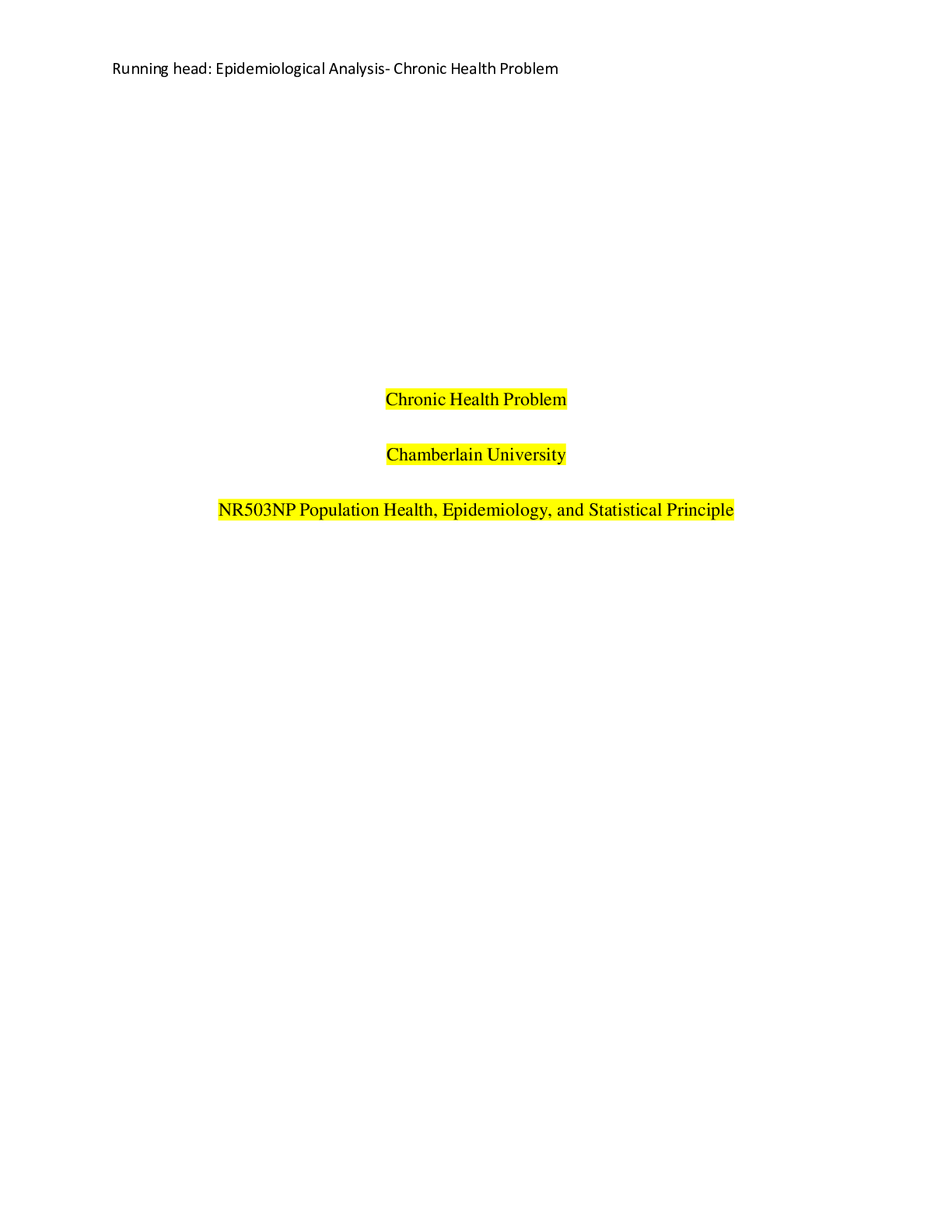
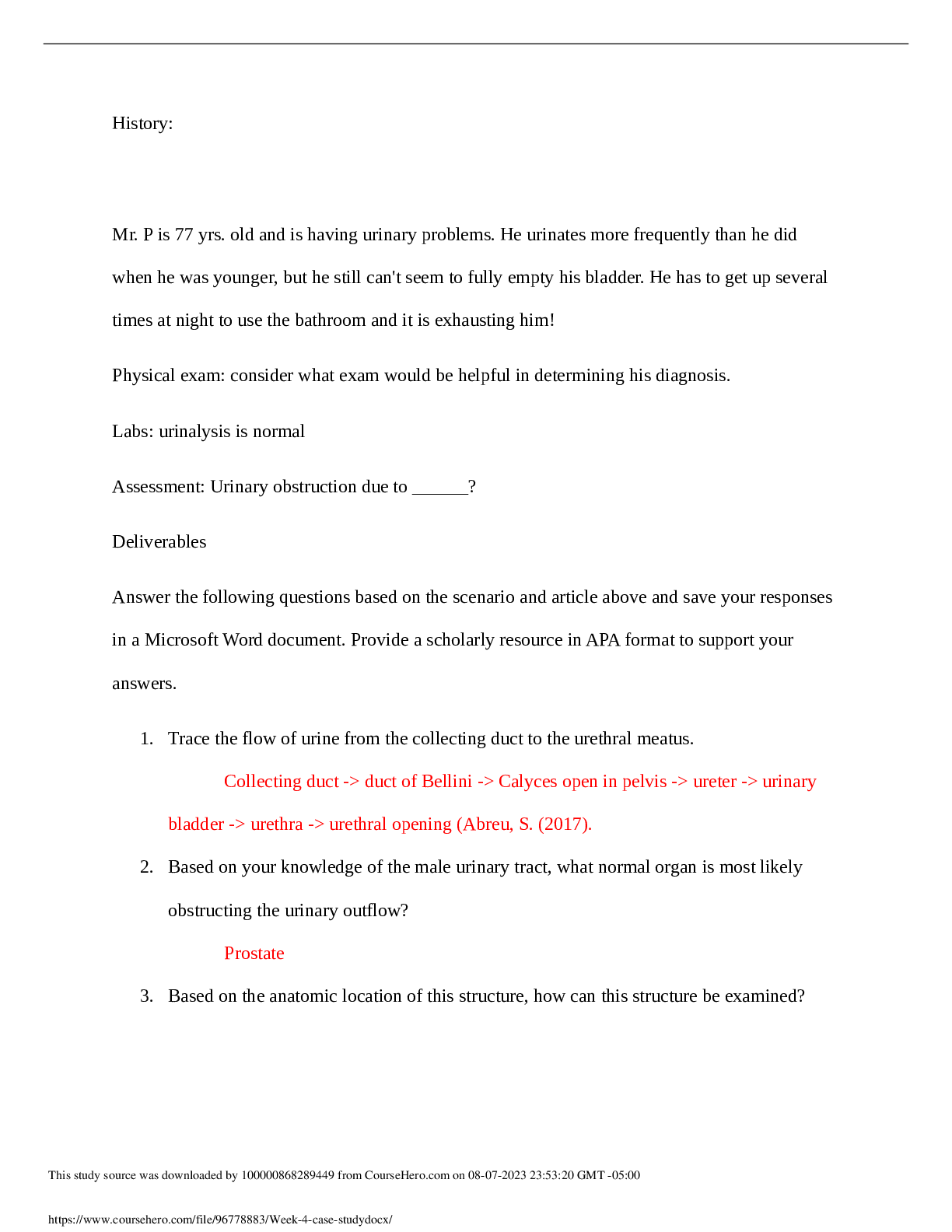

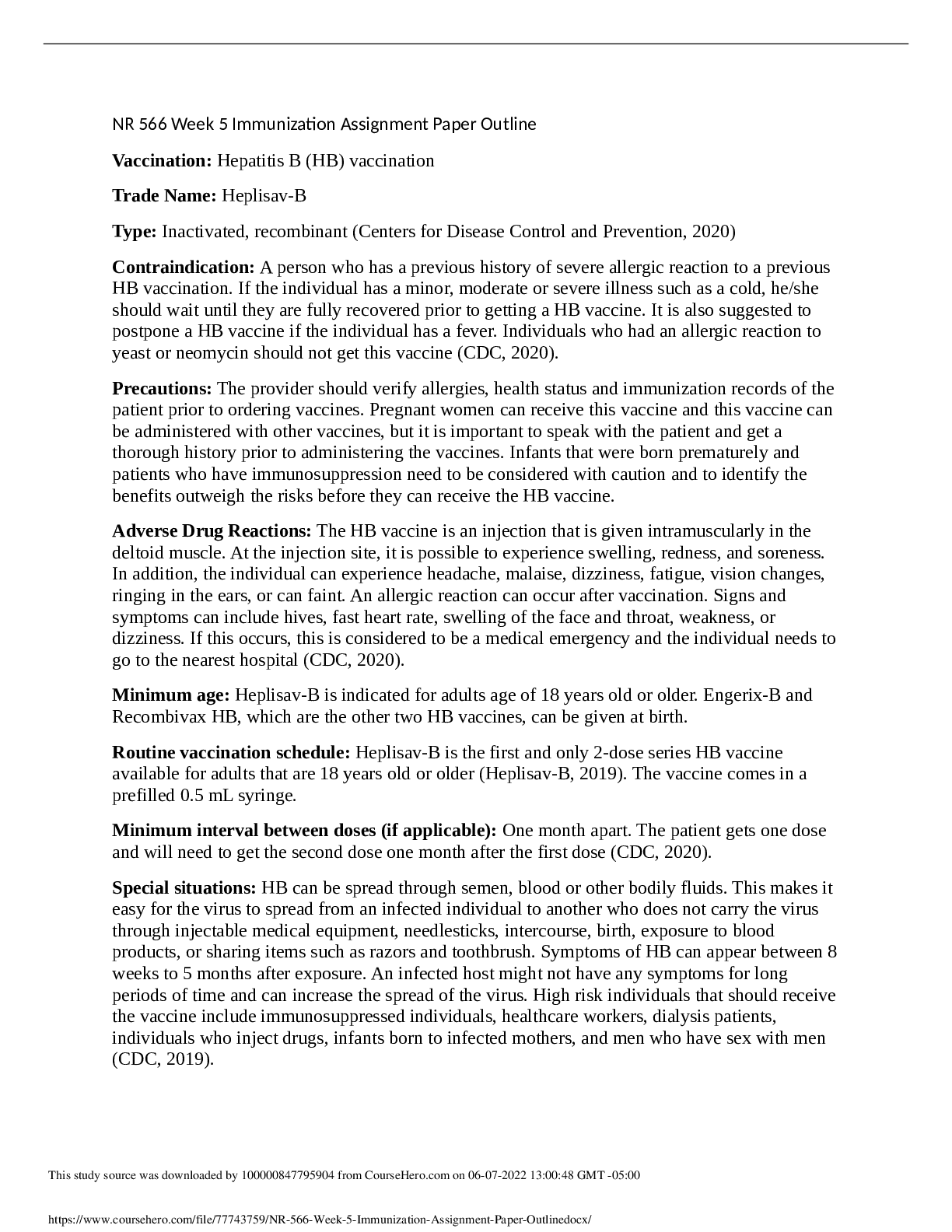
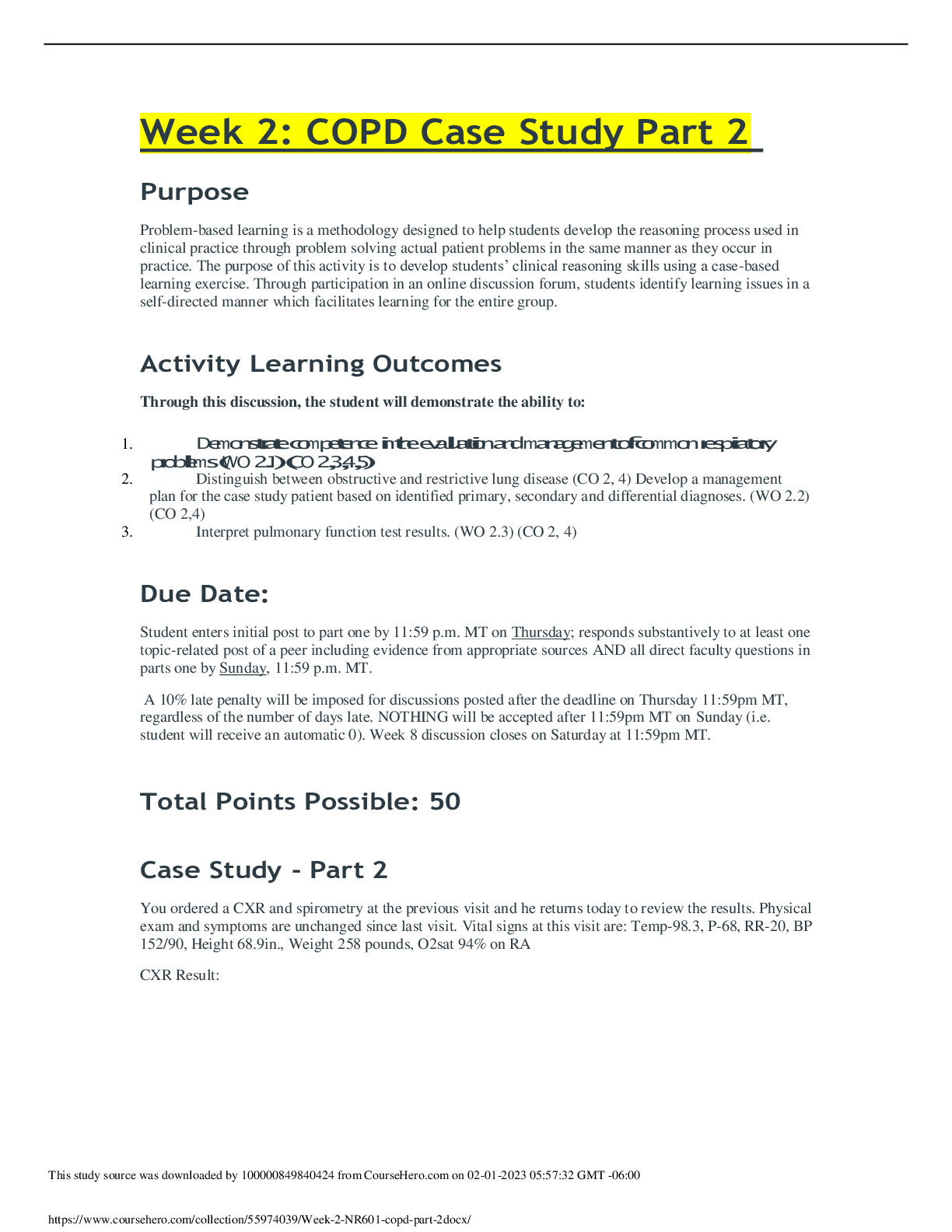
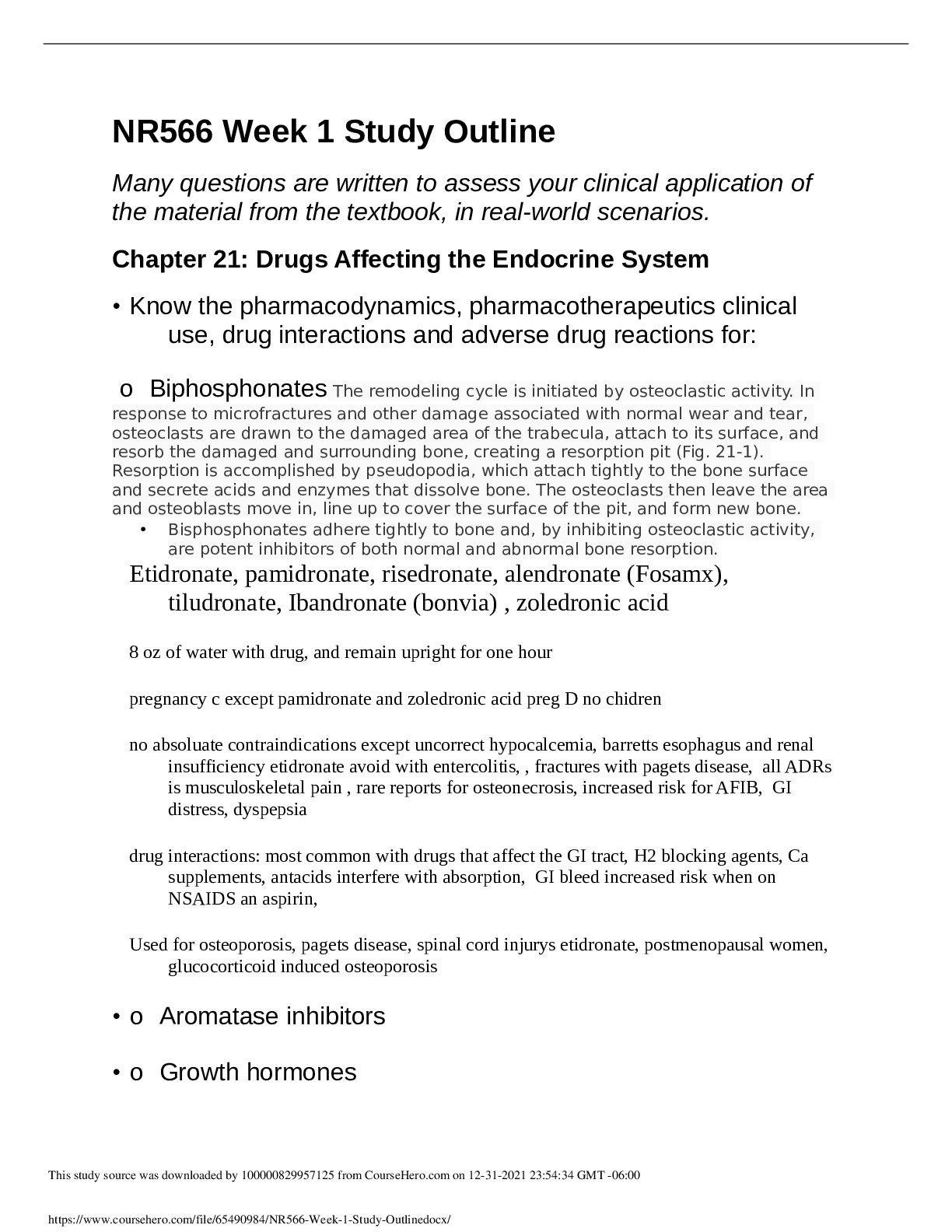





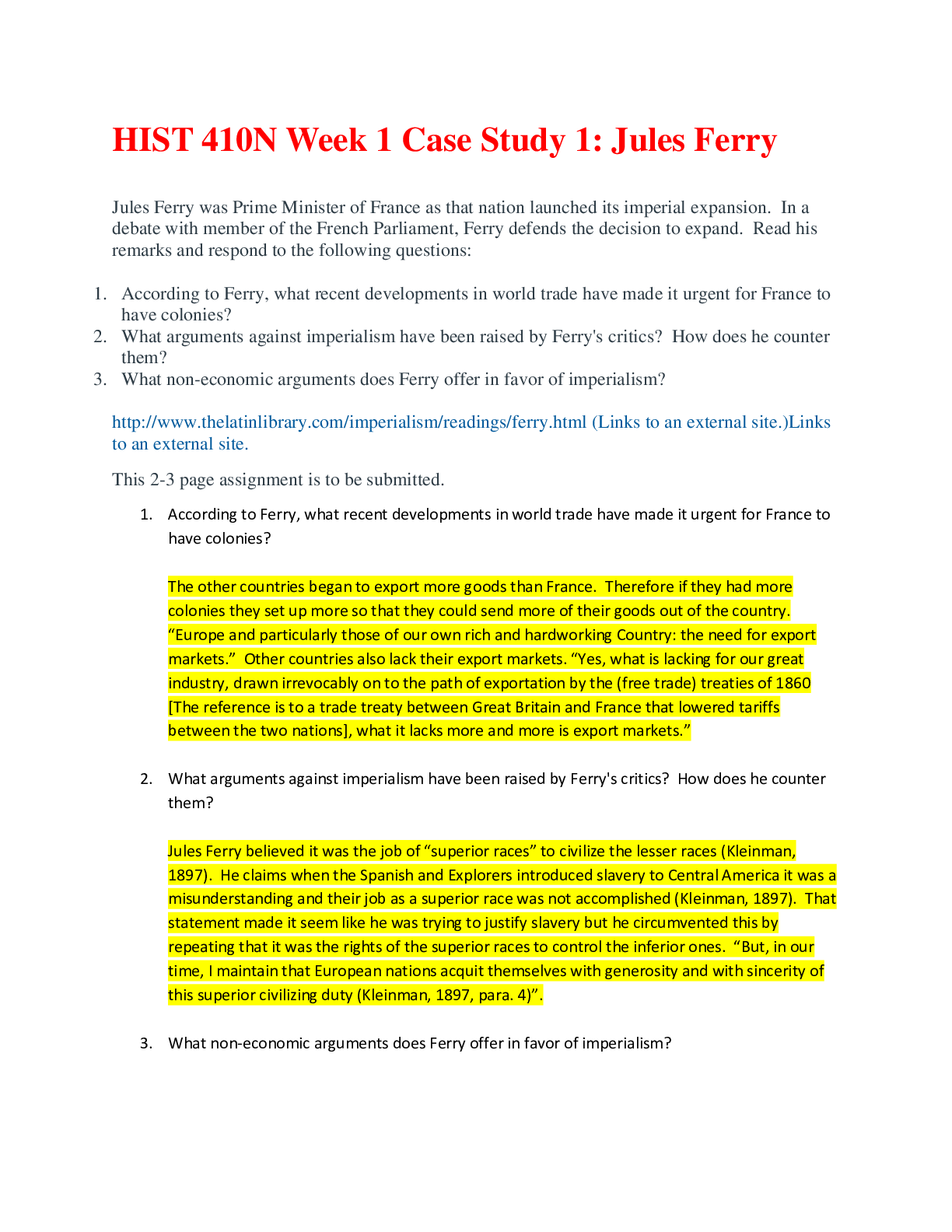
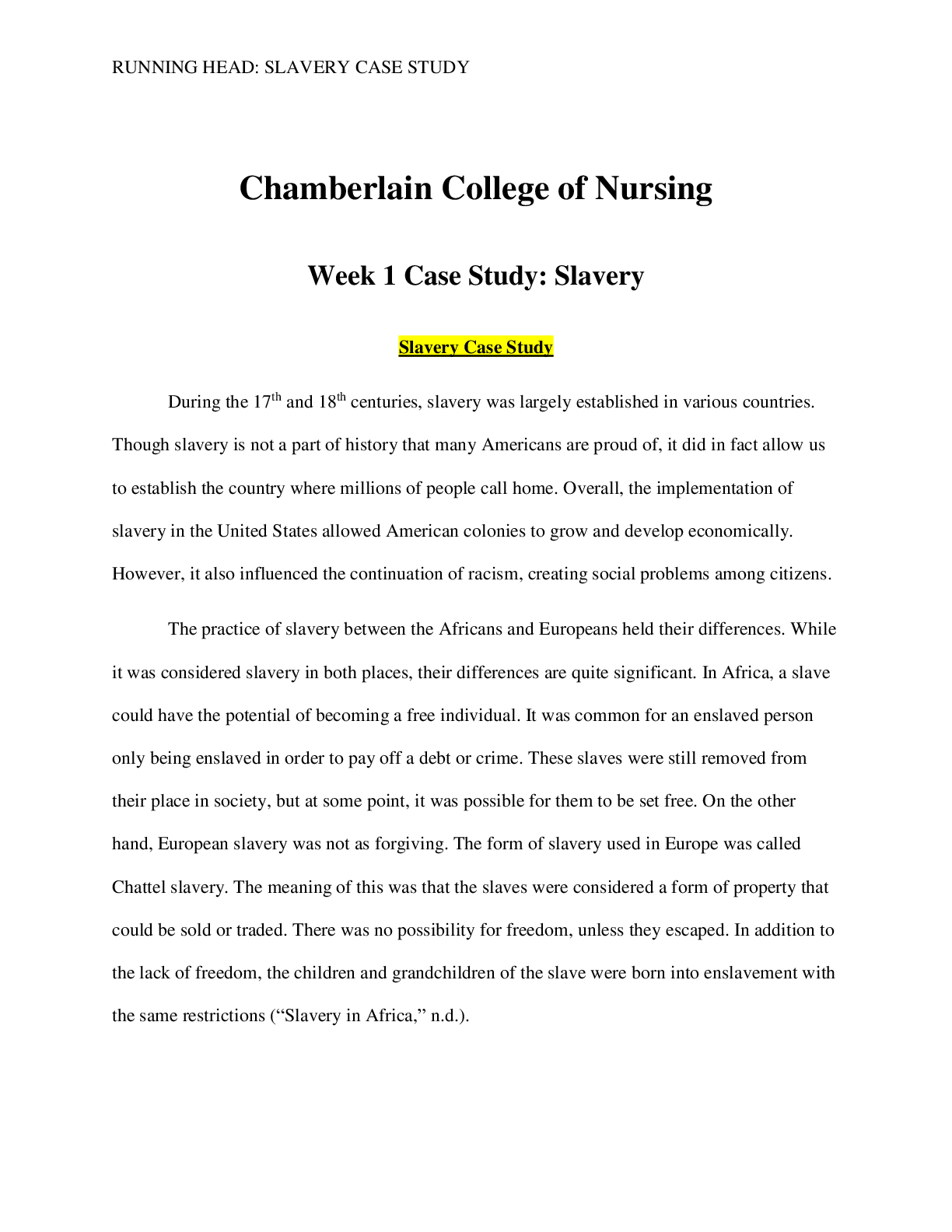




 (1).png)
.png)



.png)

